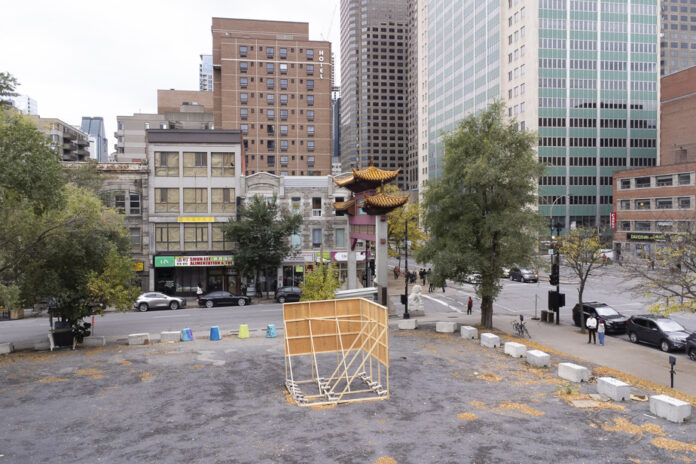It was thanks to a former business partner that Tony Accurso was able to avoid bankruptcy and keep the valuable land his company owns in Montreal and Terrebonne, even if he had to go to the penitentiary. Through an anonymous trust, his former Alberta associate agreed to lend him 50 million to pay his creditors: Quebec, Ottawa, as well as the cities of Montreal and Laval.
The fallen entrepreneur is serving a four-year prison sentence for his role in a vast corruption system in Laval. However, it retains its gems: a former disused parking lot at the entrance to Chinatown and a vast plot of land in Terrebonne. Total municipal assessments: almost 40 million.
Public records contain no information about the trust that saved Accurso’s properties. But according to a source familiar with the matter who requests anonymity because he is not authorized to comment, the financier behind WJM Trust is Walter Martinello, Accurso’s former business partner, former president of his pipeline construction company, Louisbourg Pipelines.
La Presse contacted the Edmonton lawyer who represents the trust according to land documents, Gary I. Biasini. However, he provided no comment, and Walter Martinello did not return our calls.
Responsible for the insolvency procedures of Accurso and its companies at Raymond Chabot, Jean Gagnon did not wish to elaborate on the identity of the financier. However, he confirms that the 50 million check was the key to avoiding the “fire sale”. “This is the financing that was required to resolve the entire insolvency proceedings,” he says.
The lawyer who negotiated the financing of Accurso, Guillaume Rochon, at Ravinsky Ryan Lemoine, did not want to comment on the agreement.
In February, Accurso and his company Simard-Beaudry agreed with creditors to pay $48 million in taxes and reimbursement for corruption costs. Constructions Louisbourg ltée went bankrupt.
According to our information, all attempts to find the necessary funds failed before contacting Walter Martinello. Both banks and private lenders raised eyebrows at the land that Accurso offered as collateral, heavily encumbered by a $62 million mortgage in favor of Revenue Canada.
After paying public creditors, Ottawa canceled its mortgage at the end of June.
From his cell, Accurso is now testing the market for his jewel in Chinatown, near the Hydro-Québec tower and a stone’s throw from the University of Montreal Hospital Center. The Marcus brokerage firm
“The combination of its substantial size, its exceptional location and its proximity to services make these lots very attractive and make them a promising investment opportunity for potential developers,” according to the fact sheet, written only in English.
The land is subject to a “call for tender”: no price is displayed. In this type of marketing, the seller is generally not required to conclude a transaction if the offers do not suit him.
The Chinatown land is one of the last undeveloped sites in the area. The City has also published a right of pre-emption on it “for the purposes of social housing”: before accepting any offer, the ex-entrepreneur must offer it to the municipality, at the same price.
Montreal values the land at 15 million, but it could sell for twice as much under the permitted construction possibilities, according to brokers consulted by La Presse.
Accurso could have received even more if he had managed to sell the property in recent years, when the market was much more dynamic.
In addition to the City’s right of pre-emption, the new urban plan for Chinatown also has something to cool the ardor of potential buyers: Montreal has reduced the building density permitted in the southern part of the land by a third.
In 2005, when it was controlled by both the Fonds de solidarité FTQ and Accurso, the company that owns the land submitted a specific project to build a 10-story commercial and residential building on the site. She had 10 years to complete the project.
After his divorce from the Fonds FTQ in 2010, the former parking lot at the strategic location remained abandoned, stuck in limbo in the conflict between the businessman and the public authorities.
No and 1951
The Fonds de solidarité FTQ invested 114 million in its companies, before withdrawing its funds in 2010.
He was acquitted in 2018 in a corruption case in Mascouche.
He obtained a stay of the legal process in a tax fraud trial in 2021.
In 2018, he was convicted of fraud and corruption in Laval and received a four-year penitentiary sentence. After trying to appeal all the way to the Supreme Court, he finally headed to prison in July 2023.















